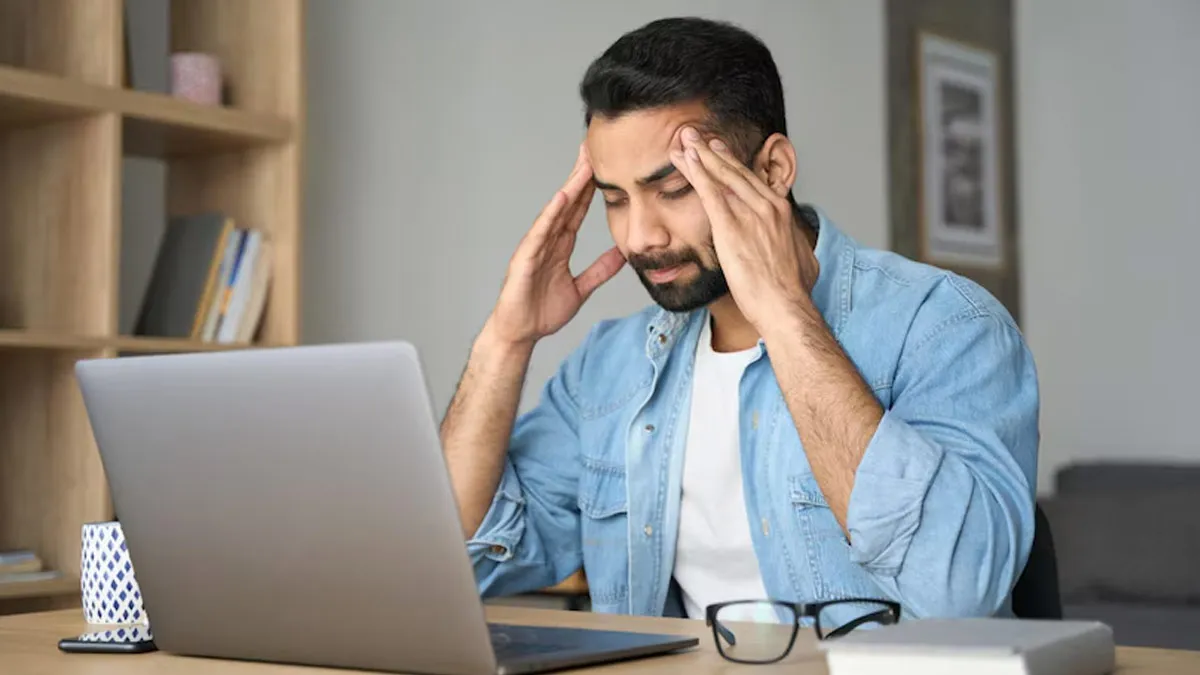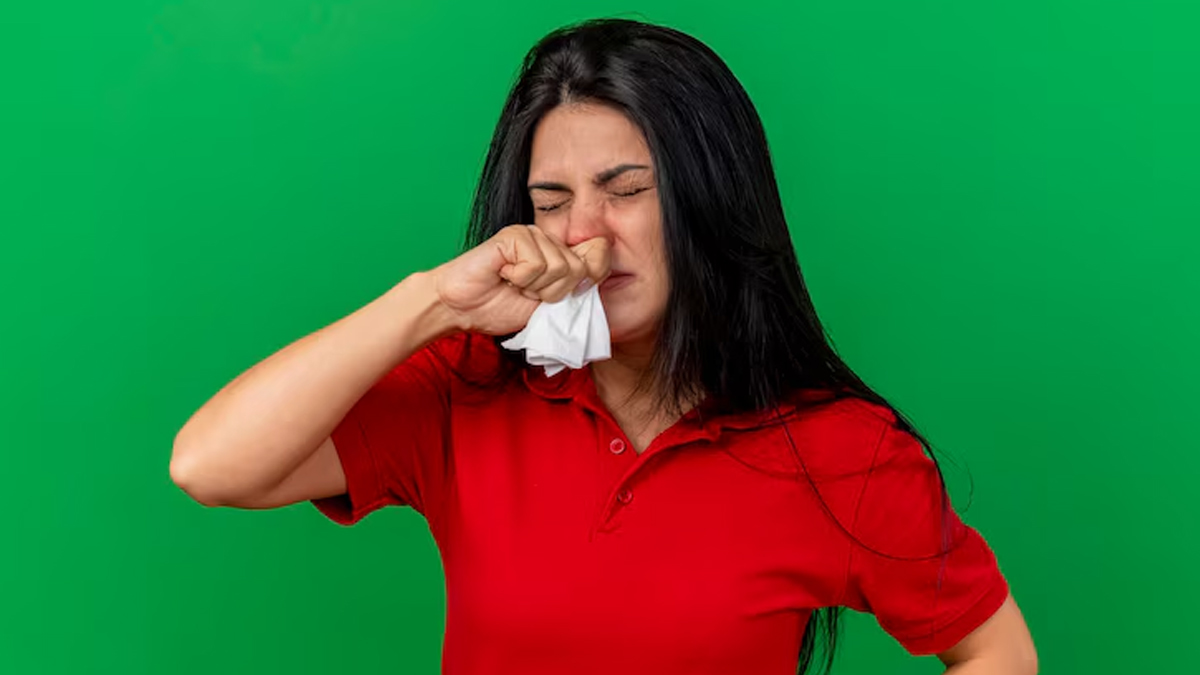
Do you often experience a throbbing headache on the right side of your head? This type of headache can be unsettling and can interfere with your day to day activities. For some people, it is so intense that even the tick tock of the clock makes it unbearable. While headaches are common, their occurrence on one side of the head, whether right or left, can sometimes indicate specific triggers or health concerns.
Table of Content:-
To understand the reason behind this unique kind of headache, OnlyMyHealth team interacted with Dr Bharesh Dedhia, Consultant – Intensive Care, P D Hinduja Hospital and MRC, Khar, Mumbai.
Dr Dedhia explained, "A right-sided headache is actually no different than a left-sided headache. But what is important to know is that you could get a unilateral headache, which means on one side of your head, either the right side or the left side, and the causes of a unilateral or one-sided headache are generally the same."
Common Causes of Right-Sided Headaches

1. Migraines
One of the most common causes of one-sided headaches, including those on the right side, is migraine. According to the World Health Organization (WHO), migraines are typically characterised by a throbbing or pulsating pain and can be accompanied by symptoms such as nausea, vomiting, and sensitivity to light (photophobia). Dr Dedhia explains, "If you are very young, like in your teenage years, this could be the start of migraines, especially if you have this throbbing headache with some signs like wanting to avoid bright light, which is called photophobia."
Individuals prone to migraines may also experience triggers such as stress, certain foods, hormonal changes, or environmental factors. Managing these triggers through lifestyle adjustments and medication can help in preventing or reducing the severity of migraines.
2. Cluster Headaches
Another potential cause of a headache on the right side of the head is a cluster headache, which is often described as an intense, sharp pain occurring in cycles or "clusters" over a period of weeks or months. Stress, irregular sleep patterns, and excessive consumption of alcohol or tobacco can contribute to the development of cluster headaches. Dr Dedhia noted, "Cluster headaches could be from stress, essentially stress at work or stress in your personal life, which could bring up a cluster headache, especially if you haven't slept properly."
Also read: What Are Cluster Headaches? Doctor Explains Causes, Signs, And Management Tips
3. Sinus or Dental Infections

Sinusitis, or a sinus infection, can lead to one-sided headaches, including pain on the right side of the head, especially if the right sinus cavities are affected. The pain may worsen when bending forward or lying down. Similarly, dental infections, such as an abscessed tooth or gum infection, can radiate pain to one side of the head and contribute to persistent discomfort.
Dr Dedhia highlights, "The other causes of a one-sided headache could be infections like a sinus infection on one side or a tooth infection that can also cause one-sided headaches." Treating the underlying infection with appropriate medications can help alleviate the headache.
4. More Serious Causes
While most unilateral headaches are harmless and can be treated with over-the-counter medication, it is important to be aware of more serious conditions that may present with persistent or worsening headaches. These could include:
- Brain infections such as meningitis or encephalitis
- Brain clots or aneurysms causing increased pressure
- Tumours or neurological conditions affecting one side of the brain
Dr Dedhia warned, "Very rarely, a one-sided headache could be a sign of something more serious in the brain like a brain infection or a brain clot." If a headache is persistent, intensifies over time, or is accompanied by neurological symptoms such as vision changes or numbness, immediate medical attention is advised.
Also read: Decoding Headaches: From Tension To Brain Issues, Unraveling The Causes And Solutions
When to Seek Medical Help
Although occasional headaches can be managed with simple over-the-counter pain killers, it is essential to monitor the headache's intensity and duration. Dr Dedhia advises, "While most of these headaches are temporary and go away with minimal or no treatment, you could try to take a Crocin or a Dolo to see if the headache is going away. But if the headache is severe, increasing in intensity, or does not go away, then obviously you need to seek medical advice to make sure that you are not dealing with a more serious condition that may need medical intervention."
Tips to Manage and Prevent Right-Sided Headaches

To reduce the frequency and severity of right-sided headaches, consider the following preventive measures:
- Maintain a regular sleep schedule: Poor sleep patterns can trigger headaches, so ensure you get adequate rest.
- Stay hydrated: Dehydration is a common trigger for headaches; drink sufficient water daily.
- Manage stress effectively: Practicing stress-relieving techniques such as yoga, meditation, or deep breathing exercises can help.
- Identify and avoid triggers: Keep a headache diary to track foods, lifestyle habits, or environmental factors that may contribute to your headaches.
- Seek professional help: If headaches persist, consult a healthcare provider to identify underlying causes and get a personalised treatment plan.
Conclusion
A headache on the right side of your head can have various causes, ranging from migraines and stress to infections and, in rare cases, more severe medical conditions. While occasional headaches are usually harmless, persistent or severe pain should not be ignored. Dr Bharesh Dedhia suggests that it is always best to seek medical attention if the headache does not subside with basic remedies to rule out any serious underlying conditions.
Also watch this video
How we keep this article up to date:
We work with experts and keep a close eye on the latest in health and wellness. Whenever there is a new research or helpful information, we update our articles with accurate and useful advice.
Current Version